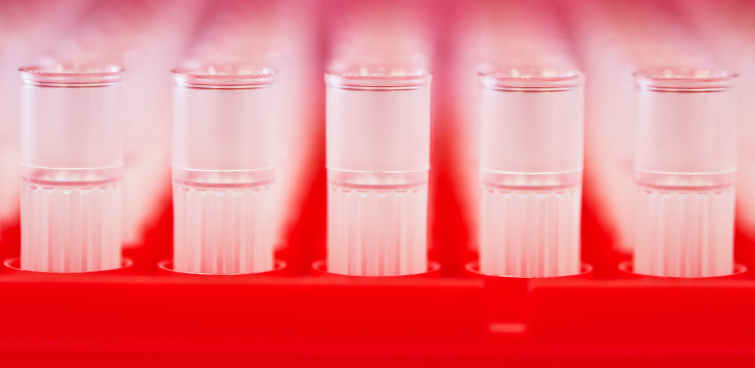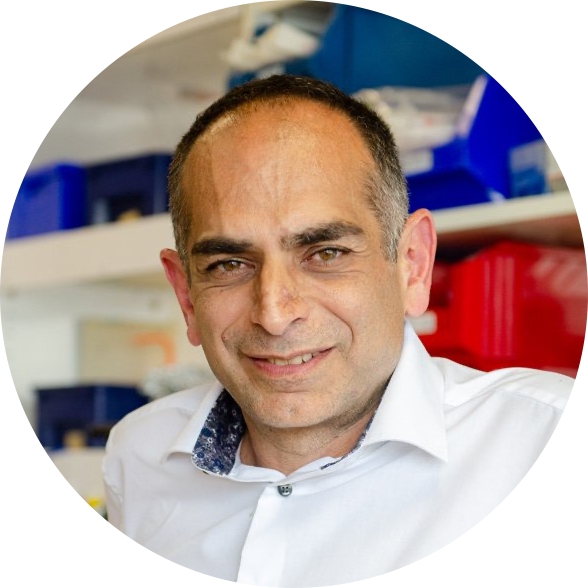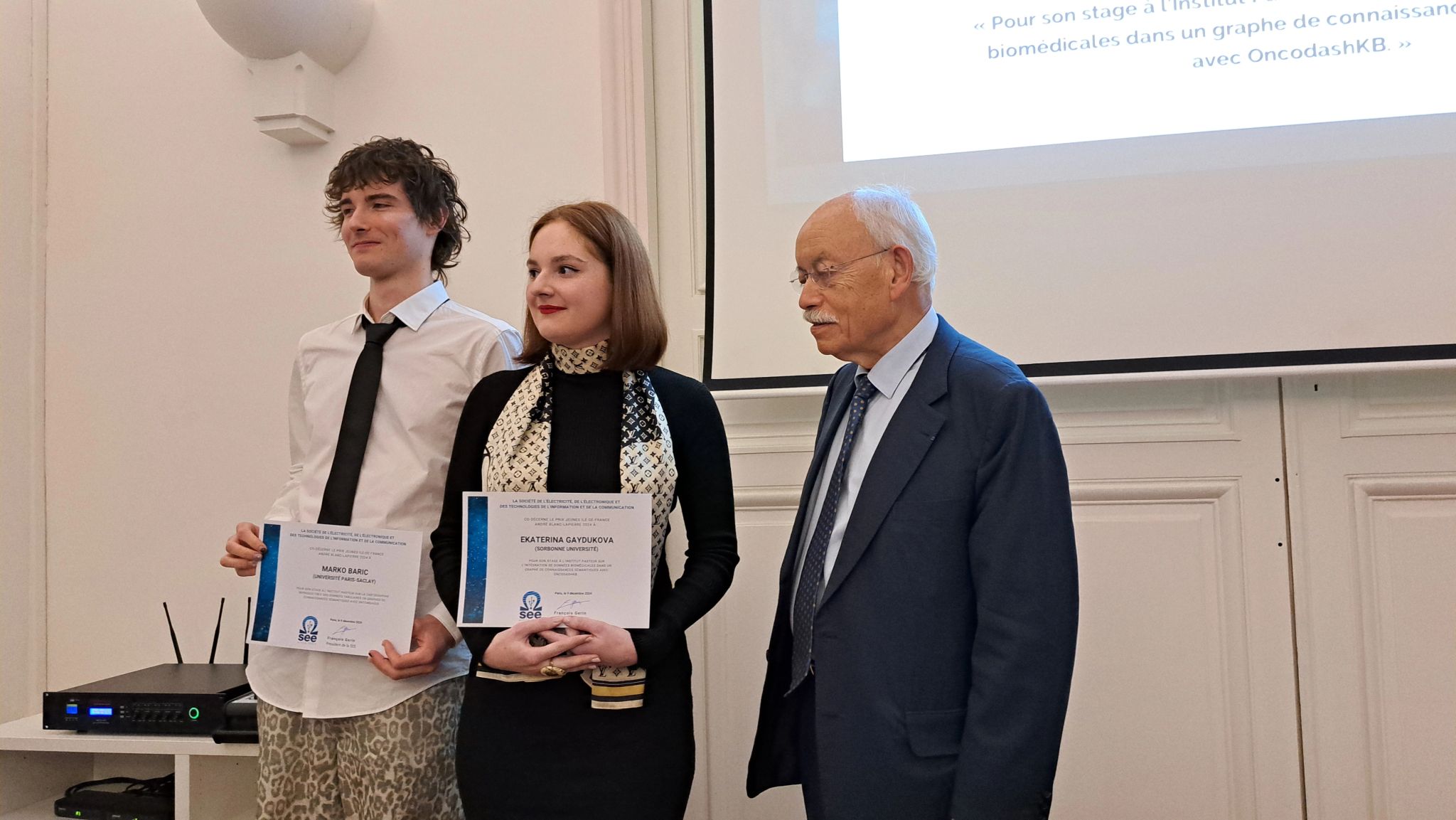
 awards
awards
2024 French National Academy of Medicine awards, André Blanc-Lapierre Young Researcher Award – Greater Paris, PEPR Food Systems, Microbiome and Health: Institut Pasteur scientists recognized
• Yasmine Belkaid, elected as a member of the French Academy of Sciences
The French Academy of Sciences keeps up with the pace of scientific progress by regularly electing new members. This enables it to cover all scientific fields as widely as possible, including emerging fields, and encourages fruitful debates and research within its groups and committees. In the early 2000s, it amended its articles of association to move towards a younger membership: at each election session, at least 50% of new members must be under the age of 55. The Academy currently has 300 members, 116 foreign associate members and 58 corresponding members.
 Following the elections in 2024, the Academy of Science elected 18 new members in December, including Laure Bally-Cuif, elected as a member in the Molecular and Cellular Biology and Genomics section. For the first time since its creation in 1666, a majority of women were elected to a class. This powerful symbol marks a significant step towards greater representation of women in all fields of research and innovation.
Following the elections in 2024, the Academy of Science elected 18 new members in December, including Laure Bally-Cuif, elected as a member in the Molecular and Cellular Biology and Genomics section. For the first time since its creation in 1666, a majority of women were elected to a class. This powerful symbol marks a significant step towards greater representation of women in all fields of research and innovation.
The ceremony to welcome newly elected members will be held on Tuesday, June 3, 2025.
Read the Academy's press release (in French)
• Two Institut Pasteur scientists among the French National Academy of Medicine's 2024 award winners
The French National Academy of Medicine gives around 40 awards every year. Some are related to specific medical fields based on the wishes of legatees and donors, while others are designed to reward or encourage research in any area of the medical, pharmaceutical or veterinary sciences.
The awards are often named after the benefactors who bequeathed funds to the Academy for them to be set up. Award winners are given the title of Laureate of the French National Academy of Medicine.
The laureates recognized by the French National Academy of Medicine on December 17 include:

Gérard Eberl, Head of the Microenvironment and Immunity Unit, laureate of the 2024 French National Academy of Medicine Award for his outstanding research analyzing the microbiota and its impact on the immune system.
The aim of the award is to encourage research deemed noteworthy by the National Academy of Medicine.
 Philippe Bousso, Head of the Dynamics of Immune Responses Unit, laureate of the Henry and Mary-Jane Mitjavile Award for his outstanding contributions to understanding the immune system response to tumor cells. His research uses in vivo imaging to observe and analyze the reactions triggered by immunotherapy and vaccines with the aim of opening up new prospects in the field of cancer immunotherapy.
Philippe Bousso, Head of the Dynamics of Immune Responses Unit, laureate of the Henry and Mary-Jane Mitjavile Award for his outstanding contributions to understanding the immune system response to tumor cells. His research uses in vivo imaging to observe and analyze the reactions triggered by immunotherapy and vaccines with the aim of opening up new prospects in the field of cancer immunotherapy.
This award goes to a French scholar or scientist for research specifically in the field of cancer.
• Marko Baric and Ekaterina Gaydukova, co-laureates of the 2024 André Blanc-Lapierre Young Researcher Award – Greater Paris


Marko Baric and Ekaterina Gaydukova, interns in the Computational Systems Biomedicine laboratory led by Benno Schwikowski, are co-laureates of the 2024 André Blanc-Lapierre Young Researcher Award – Greater Paris.
This award goes to Master's-level engineering students from French higher education institutions in the fields of electricity, electronics, and information and communication technologies. The aim is to provide national recognition for the best engineering Master's students and their teaching and lecturing teams.
Marko Baric received the award for his internship on reproducible mapping of table data in semantic knowledge graphs with OntoWeaver, and Ekaterina Gaydukova for her internship on the integration of biomedical data into a semantic knowledge graph with OncodashKB.

• Ivo Gomperts Boneca and Benoit Chassaing, laureates of the PEPR Food Systems, Microbiomes and Health call for proposals
Priority Research Programs and Equipment (PEPR) on Food Systems, Microbiomes and Health, also referred to as "Nutrition – Microbiomes," are funded under the French government's "France 2030" investment plan. The aim is to prevent and treat chronic inflammatory diseases by developing precision nutrition and personalized medicine, and to contribute to the design and evaluation of public policies in the area of eating behavior.
This year, the ten projects selected by the ANR-appointed evaluation committee include two Institut Pasteur projects:
 The project "The role of the peptidoglycan produced by the microbiota in host physiology," submitted by Ivo Gomperts Boneca, aimed at studying the chemical make-up and metabolism of peptidoglycan fragments derived from the gut microbiota, as well as the parameters influencing their biodistribution to remote organs such as the brain, liver and joints.
The project "The role of the peptidoglycan produced by the microbiota in host physiology," submitted by Ivo Gomperts Boneca, aimed at studying the chemical make-up and metabolism of peptidoglycan fragments derived from the gut microbiota, as well as the parameters influencing their biodistribution to remote organs such as the brain, liver and joints.
 The project "Interactions between the gut microbiota and food additives: mapping and mechanisms at play in human health," led by Benoit Chassaing, aimed at producing a detailed map of the interactions between emulsifying agents and the gut microbiota, in both healthy participants and patients with Crohn's disease. The results obtained may pave the way for innovative new approaches to nutrition and personalized medicine based on the gut microbiota and its sensitivity to food additives.
The project "Interactions between the gut microbiota and food additives: mapping and mechanisms at play in human health," led by Benoit Chassaing, aimed at producing a detailed map of the interactions between emulsifying agents and the gut microbiota, in both healthy participants and patients with Crohn's disease. The results obtained may pave the way for innovative new approaches to nutrition and personalized medicine based on the gut microbiota and its sensitivity to food additives.